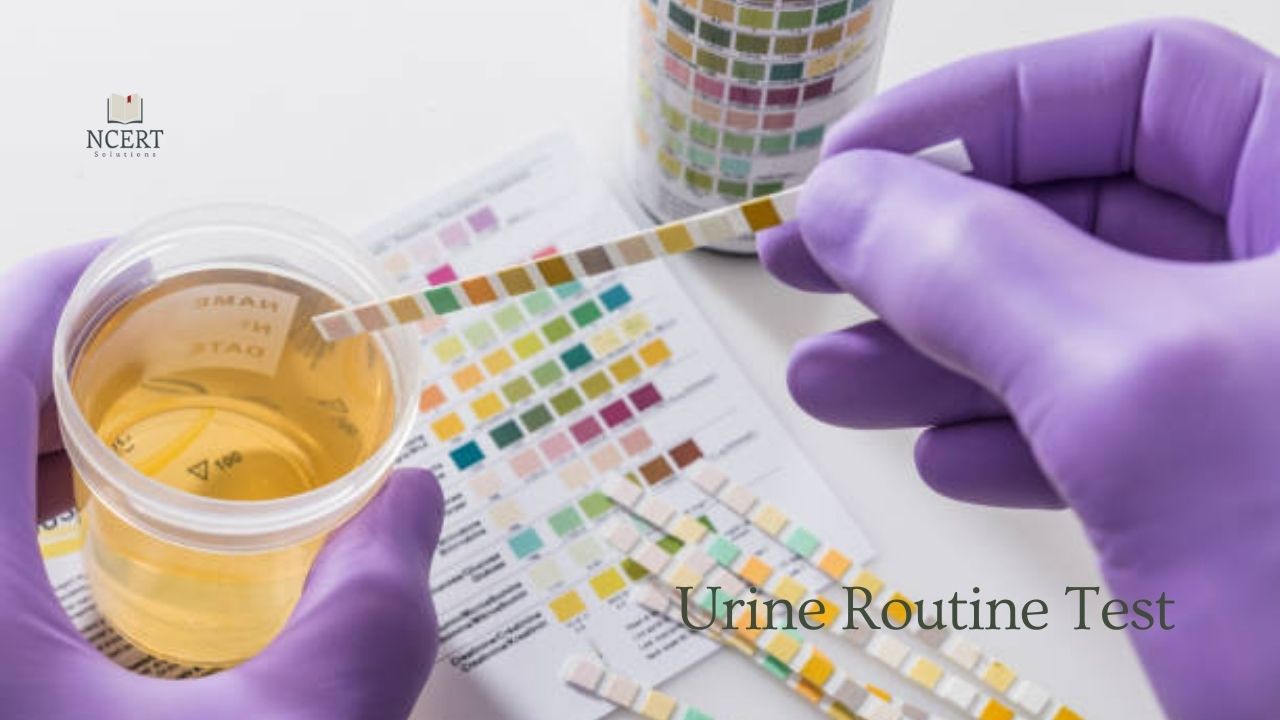A urine test is a common procedure in which a urine sample is collected and tested in the laboratory. A routine urine test is a series of urine tests and analyses done periodically to check the wellness of a person. Routine urine test is also done by doctors to detect any infectious disease. A urine test is also known as urine analysis. It is normally used to check health regularly.
This test provides important and reliable information about the health status of the person. The urine test provides a list of several common pathological mechanisms. Urine is made up of a mixture of many substances present in the body, these substances need to be excreted. These substances are produced as a result of normal or abnormal metabolism of the body.
A urine test is done by taking a sample of the patient’s urine in a special cup. Usually, only a small amount (30-60 mL) of urine is needed for urine analysis or testing. The urine sample is either analyzed in a medical clinic or sent to a lab.
What is a Urine routine test?
Urine routine tests are a set of tests that are performed on a sample of urine. It involves (Physical, chemical, and microscopic examination) of urine to check the presence of any abnormal health conditions.

Urine tests are also used to check for any type of kidney disease or urinary tract infection.
It also helps in identifying those diseases, due to which the body’s substances break down abnormally and come out of the body through urine like – Protein or serum.
Why it is done?
A urine test is a group of (Physical, chemical, and microscopic tests). This test detects and measures certain types of substances in the urine.
Such as cells, fragments of cells, bacteria, and by-products of normal and abnormal metabolism, etc.
A doctor may recommend a urine test for many reasons, including the following –
Routine Medical Evaluation – General annual check-up, preoperative assessment, hospital admission, screening for kidney disease, diabetes, high blood pressure, and liver diseases etc.
Evaluating specific symptoms – abdominal pain, flank pain, painful urination, fever, blood in the urine, or other urinary symptoms.
Testing for medical conditions – urinary tract infection, kidney stones, uncontrolled diabetes (high blood sugar), kidney failure, muscle breakdown (rhabdomyolysis), protein in the urine, monitoring medications, and kidney inflammation (glomerulonephritis).
Monitor disease progression and response to treatment – kidney disease associated with diabetes, kidney failure, kidney disease associated with lupus, kidney disease associated with blood pressure, kidney infection, protein in the urine, and serum or blood in urine.
- Pregnancy test – A woman’s pregnancy is also detected by performing a urine test.
A complete urine test consists of three steps:
Testing by sight – In this stage, the color and purity of urine, etc. is checked.
Chemical test – A chemical test is done to check glucose and protein, etc. in urine. The substances present in urine give important information about the health of the body and other diseases. These findings are very helpful to take the appropriate preventive or remedial measures at the right time.
Microscopic examination – with the help of this, the types and quantity of cells in the urine are examined. Other constituents in urine such as bacteria etc. are also identified by microscopic examination.
How to prepare yourself for the test
Before getting the test done, make sure that you are drinking sufficient water to produce enough samples. For a urine test, you do not need to stop eating and drinking or make any kind of changes in your routine life. However, morning urine is often recommended for better findings of health issues.
If you take certain medicines or supplements, etc., then definitely tell the doctor about them. There are some medications and supplements that can affect urine test results, for example –
- Vitamin C Supplements
- Metronidazole
- Riboflavin
- Anthraquinone laxatives
- Methocarbamol
- Nitrofurantoin
During the procedure
The doctor may ask you to bring a urine sample from home or give the sample at the hospital itself for the test. The doctor gives the container to collect the sample.
Better results are obtained by the use of ‘the clean-catch method, whose steps are as follows:
- Ask for a container for a urine sample
- Clean the area around the urinary tract thoroughly.
- Start urinating in the toilet.
- Stop in the middle.
- After that fill the sample in the container up to the quantity prescribed by the doctor.
- Do the rest of the urine again in the toilet itself.
- Follow the instructions of the doctor to take the sample to the doctor.
After Urine Test (Urinalysis)
Normally urine sample is taken in a urine test. As soon you hand over the sample to the doctor or lab, you can go home.
Once your test is conducted, you can collect the reports and consult your doctor for necessary action.
What are the risks involved in urine tests?
There is no risk in giving samples for urine tests. If a catheterized specimen is needed, it may be a bit painful for a while. As catheterization includes the insertion of a foreign object in the urinary tract therefore it involves the potential risk of infection.
What do urine test results mean?
Urine tests provide a variety of measurements to check for abnormalities in the urine.
Visual Exam
The doctor may also examine a urine sample visually by looking following abnormalities:
- Blurred urine, which indicates infection.
- The color of urine is light red or brown, which indicates the presence of blood in the urine.
- Unusual odor (smelling) from urine.
Microscopic Exam
In this test, the doctor looks at a few drops of urine under a microscope.
which gives information about many things, such as:
- Abnormalities in red and white blood cells can be a symptom of infection, kidney disease, bladder cancer, or a blood disorder.
- Crystals, which can indicate kidney stones.
- infectious bacteria or yeast
- Epithelial cells, which may indicate a tumor.
Chemical / Dipstick Test
For a dipstick test, the doctor inserts a stick containing a chemical into the urine sample.
The color of the stick inserted changes according to the substances present in the urine. This test helps the doctor to detect many things in the urine, such as –
- Bilirubin
- Blood
- protein
- Sugar
- pH level and acidity
If the amount of particles in the urine is high, it can also be a sign of dehydration. High levels of pH can also indicate problems related to the urinary tract and kidneys. Along with this, the amount of sugar in the urine can indicate diabetes.
When to get a urine test?
If you have any problem related to the kidney or urinary tract, a urine test is done to identify the problem better.

The symptoms of which may include the following:
- stomach ache,
- back pain,
- Pain while urinating
- frequent need to urinate
- blood in urine etc.
Some other symptoms, after which the doctor immediately directs a blood test to be done, include the following:
- Blood in urine or cloudy urine
- Feeling cold
- Fever
- Back pain
- High blood pressure
- Edema or swelling
- Loss of appetite
- Nausea and vomiting
- Tiredness
- Falling asleep
- Itching
- Metallic taste in the mouth.
Urine test result
Urine test results can provide information about a variety of problems.
- If high pH levels are obtained, the condition may indicate problems with the urethra or kidney
- The presence of sugar in the urine sample may indicate diabetes
Under the visual test of urine, if the urine smells abnormal, then the results obtained indicate problems like infection
The results obtained through microscopic tests were analyzed in the following way:
- The presence of white blood cells (leukocytes) in the sample may indicate infection
- The presence of abnormal red blood cells (erythrocytes) in the sample may indicate kidney disease, a blood disorder, or bladder cancer
- The appearance of epithelial cells, in the urine, may indicate a tumor
- The presence of bacteria or yeast in the sample may indicate an infection
- The presence of crystals may indicate a kidney stone
Urine Routine Test Price – Cost of Urine Test
A urine test is one of the effective Health screening procedures. The cost of a urine test may vary from city to city.
Generally, the urine test price in India depending on the city, test quality, and availability varies from Rs. 110 to 850 rupees.




